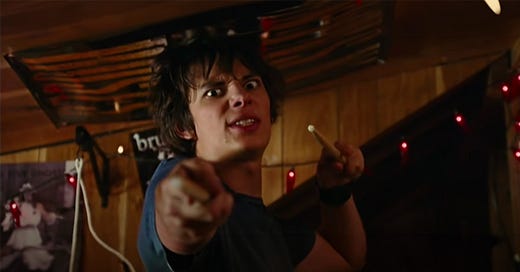The Epidemic of Office Niceness
An introduction to the rampant problem and what can be done about it
There is an epidemic of "niceness" at work. Death by a thousand cuts of agreeability. People take on too much in the name of "being a team player."
We all know the person. They raise a hand to take on responsibility outside their skill or, worse, they don’t have time to complete it. They dance on the edge of burnout. This isn’t run-of-the-mill “doing my part” teamwork. It’s people-pleasing.
Right out of college, I agreed to take on a freelance job creating a logo for a start-up fashion designer. It was a fantastic side gig, and I was grateful for the opportunity. Then he asked for a website: ” A simple landing page,” he said. I wanted to please. He kept pushing: he wanted a full e-commerce build-out. I was WAY over my head and had NO idea how to deliver, but I said yes. I was forced to give up just six days later. I returned all the money he paid. I failed hard because I didn’t know how to say no.
Social media is full of advice like “just challenge yourself” and “fake it til you make it.” But I have some different advice for you.
It wasn't written by Seth Godin or Ayn Rand or Kierkegaard. I promise you've never seen it on LinkedIn. Not in the Bible or buried in Shakespearean verse.
It's from a book published fifteen years ago, read by millions, yet most people pass it by.
"Don't be good at something you don't want to do.”
This ten-word proverb is from "Diary of a Wimpy Kid: Rodrick Rules" by Jeff Kinney, but this is no joke. This is one of the most useful phrases you'll read all week.
In the story, high schooler Rodrick teaches his younger brother Greg the "secrets to an easy life." The first rule is: "Don't be good at something you don't want to do." In the 2011 movie adaptation, we immediately see the two brothers cleaning their dad's car with filthy rags, only to have their dad get upset and do it himself, as they had planned.
There are two ways of interpreting this sacred text:
One is to be purposefully terrible at tasks you don’t want to be asked to do. You know the tasks: mundane, thankless busywork that gets dumped on the person with the worst boundaries in the office. If you find yourself in this position, you can muster the courage to underwhelm with your ineffectiveness, to the dismay of your colleagues.
But if you don’t want to look like a useless dingbat, you should consider the second interpretation–and the more honorable approach. Be more intentional about what you say YES to. Agree to take on tasks you can bring real value to or things you’d like to be known for doing well. I never wanted to be an e-commerce website designer, yet I said yes when I should have said “no thanks.”
Saying no is the most powerful way to say yes to things that matter.
We’re all wired with a desire to please others—nothing wrong with that. Being liked and accepted are some of the best parts of being human. But when the desire to please becomes overwhelming and hurtful, remember these wise and Wimpy words: “Don’t be good at something you don’t want to do.”
What do you think?
Comments:
“This is no Dog Days but fine. PS — a full post and no Fregley reference? What are you even watching???”
“Raises hand, but not in a people-pleasing way. I’ve been this and I’m recovering.”
“I think you’ve underplayed the immense comedic value of messing with people in the office. The idea of being terrible at everyday office tasks like ‘coffee’ and ‘Excel’ and ‘state taxes’ is ripe for exploration.”
“How can I be bad at something when I’m literally great at everything????”
“I’m sorry I took your money. Where can I Venmo you?” — 2003 fashion designer
Thanks so much for reading. Hope you’re enjoying my writing on business life, leadership, creativity, my entrepreneurial story, and all the jokes throughout.
If you haven’t already, please consider Subscribing, and if you already have, tell a friend!
See you next time—
Alec






2.
Saying no is the most powerful way to say yes to things that matter.
NO was my word of the year 2022. Saved me so much on "shiny gold syndrome" unnecessary classes and spending. It was a huge learning for a recovering Yes-aholic.